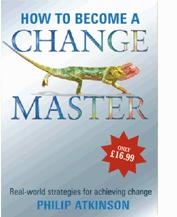
Are people becoming less innovative in their thinking purely because of the excessive dependence and use of smart phones and other ‘gadgetry’ distracting them? It seems so…..
Research from USC’s Marshall School of Business, strongly suggests that you are probably annoying your boss and colleagues any time you look at your phone during meetings. This becomes increasingly the case if you work with women and people who are over 40. They’re even more perturbed by it than everyone else.
The researchers conducted a nationwide survey of over 550 full-time working professionals earning above $30K and working in companies with at least 50 employees. They asked about smartphone usage during meetings and discovered not unsurprisingly that:
- 86% think it’s not appropriate to answer phone calls during meetings
- 84% think it’s not okay to write texts or emails during meetings
But it is definitely a generational thing.
Millennials vs. Baby Boomers & Generation X
The research also suggests that Millennials are three times more likely than those over 40 to think that the use of the cell or smart phone is acceptable behaviour. We find this strange when the careers of these ‘millennials’ is dependent upon the views and perceptions of their more senior colleagues.
Research by TalentSmart suggests Millennials suffer from lower awareness of the impact their behaviour on others. This is a key issue for millennials if they really do want to advance up the career ladder. They don’t seem to realise that their unnecessary use of gadgetry is actually harming their careers.
Research Findings
Generally, more senior people (who are probably i Generation X or Baby Boomer generation) find the excessive use of smartphones and other tech to be inappropriate.
What happens then when you take out your phone in meetings? Research suggests that it is:
- Disrespectful to your colleagues because paying attention to your phone indicates that you think that it is more important than the work you are undertaking with others in the meeting. You have prioritised what is happening outside the meeting as being more important than what is happening in the ‘here and now’.
- Failure to maintain attention. You are constantly distracted and unable to demonstrate any discipline to maintain focused on what is happening there and then.
- You aren’t displaying empathy, the key to all communication. If you are constantly distracted, how can you pay any attention or actively listening, indicating that you not paying attention to those around you.
- You are not in control. Technology is changing your behaviour for the worse. You are constantly distracted by the ‘stimulus response’ created by the buzz of your phone.
- Poor self-awareness and personal judgment. You don’t understand the implications of your behaviour on others and how you present yourself publically.
- Take a good look in the mirror and consider how your default behaviour impacts others in the team.
Short Attention Span
So, what is the impact of this behaviour if it becomes commonplace in the business? It is not surprising that this negatively impacts how people think and feel about solving problems, especially if they are important issues. These sets of behaviour create an incredibly short attention span thus interrupting the ‘testing’ and ‘rumination’ phase associated with people and teams who are prone to generate creative ideas.
Cultural Change
So where does this leave us? It leaves us with some interesting issues and questions about how different generational groups can learn to work together. It tells us that we need to assess the key conflicts that reside between the generations.
You might like to read this article that I had published a few years ago “Millennials: Researching the Application of Demographics to Build Customer Relationships and an HR Strategy”.
It’s about how organisations can better plan to employ Millennials as staff and as customers or end users. What separates the baby boomers, Generation x and Y and Millennials is a set of values which need to be resolved if all of the organisation is going to work well together in the future.
| millennials_generation_x___y_crm___hr_strategy-philip-atkinson.pdf |

 RSS Feed
RSS Feed

